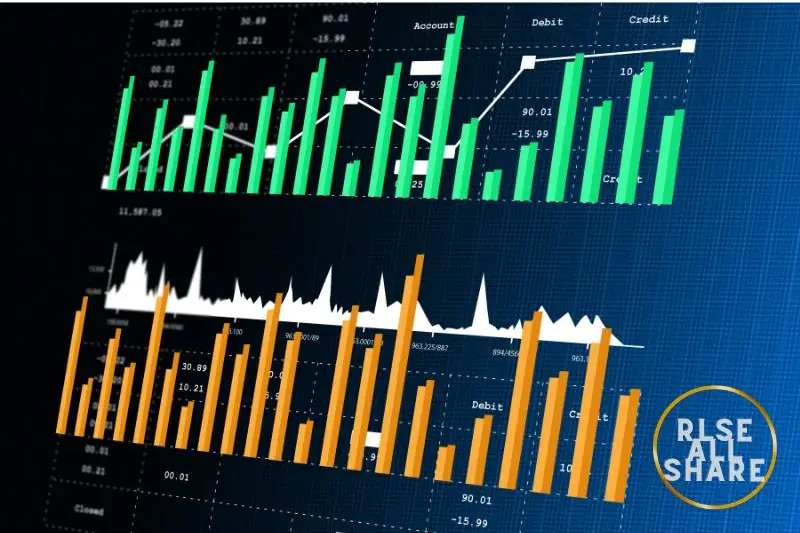Discover the dynamic world of the stock market in China – a powerhouse driving global economic growth. With a market size surpassing $10 trillion, China’s stock market plays a crucial role in shaping international investment trends.
Key stock indices in China include the Shanghai Stock Exchange Composite Index (SSE), the Shenzhen Stock Exchange Component Index (SZSE), and the CSI 300 Index comprising top listed companies across both exchanges.
Gain insight into this thriving market and unlock opportunities for investment and financial success!
How Does the Stock Market Work in China
The stock market in China operates similarly to other international markets, with investors buying and selling shares of publicly traded companies. The main stock exchanges in China are the Shanghai Stock Exchange and the Shenzhen Stock Exchange.
To invest in the stock market in China, foreign investors can do so through the Qualified Foreign Institutional Investor (QFII) program or the Renminbi Qualified Foreign Institutional Investor (RQFII) program. These programs allow foreign investors to trade A-shares listed on Chinese exchanges.
When investing in Chinese stocks, it’s important to consider factors such as economic policies, government regulations, and market trends. It’s also essential to conduct thorough research on individual companies before buying their stocks.
Some of the major stocks that generate profit in China include:
- Alibaba Group Holding Ltd (BABA)
- Tencent Holdings Ltd (0700.HK)
- Ping An Insurance Group Co of China Ltd (601318.SS)
- Industrial and Commercial Bank of China Ltd (1398.HK)
- China Mobile Ltd (0941.HK)
What is the benefits of buying stocks in China
Investing in the stock market in China can offer several benefits for investors looking to diversify their portfolio and potentially earn higher returns. Some of the key advantages of buying stocks in the China stock market include:
Diversification: Investing in Chinese stocks can help diversify your portfolio by providing exposure to a different market with unique opportunities and risks compared to Western markets.
Growth potential: China is one of the fastest-growing major economies in the world, offering significant growth potential for companies listed on its stock exchanges.
Access to emerging industries: The China stock market provides access to companies operating in emerging industries such as technology, e-commerce, and renewable energy, which have strong growth prospects.
Tips and takeaways for investing in the China stock market:
Research companies thoroughly: Before investing in Chinese stocks, it is important to conduct thorough research on individual companies, including their financial performance, management team, competitive positioning, and growth prospects.
Understand regulatory risks: The China stock market is subject to government regulations that can impact the performance of certain industries or companies. It is important to stay informed about regulatory changes and their potential impact on your investments.
Diversify your investments: Diversification is key to managing risk when investing in any stock market, including China. By spreading your investments across different sectors and companies, you can reduce the impact of any single investment underperforming.
Monitor your investments regularly: Keep track of how your investments are performing and make adjustments as needed based on changes in company fundamentals, market conditions, or economic trends.
Seek professional advice if needed: If you are unfamiliar with investing in the China stock market or lack the time to conduct thorough research on individual companies, consider seeking advice from a financial advisor or investment professional.
In conclusion, investing in the China stock market can provide diversification benefits and access to high-growth opportunities. By following these tips and takeaways, investors can potentially capitalize on the growth potential of Chinese stocks while managing risks effectively.
The main stock indices in China
Stock market indices are a way to measure and track the performance of a specific group of stocks in the stock market. They provide investors with a snapshot of the overall market’s health and can help them make informed decisions about their investments. Some of the most important stock market indices include the S&P 500, Dow Jones Industrial Average, and Nasdaq Composite in the United States, as well as the FTSE 100 in the United Kingdom and the Nikkei 225 in Japan.
In China, one of the most important stock market indices is the Shanghai Stock Exchange Composite Index (SSE Composite), which tracks all listed A-shares and B-shares on the Shanghai Stock Exchange. Another key index is the Shenzhen Stock Exchange Component Index (SZSE Component), which includes all listed A-shares and B-shares on the Shenzhen Stock Exchange.
The regulation of stock market indices in China falls under the jurisdiction of various government bodies, including the China Securities Regulatory Commission (CSRC) and major stock exchanges like the Shanghai Stock Exchange and Shenzhen Stock Exchange. These regulatory bodies oversee the listing requirements for companies included in these indices, ensure compliance with trading rules and regulations, and monitor for any potential market manipulation or insider trading activities.
Investors looking to invest in Chinese stock market indices should be aware of these regulatory bodies and their role in maintaining a fair and transparent marketplace. It is important to conduct thorough research on individual companies included in these indices, understand their financial health and performance metrics, and stay informed about any regulatory changes or developments that may impact their investments.
In conclusion, stock market indices play a crucial role in providing investors with valuable insights into market trends and performance. In China, regulatory bodies like CSRC oversee the listing requirements for companies included in key indices like SSE Composite and SZSE Component. By staying informed about these regulations and conducting thorough research, investors can make more informed decisions about their investments in Chinese stock markets.
Recap: The stock market in China
The stock market in China has experienced significant growth and development over the years, making it one of the largest and most important markets in the world. With a vast number of listed companies and a large pool of investors, the Chinese stock market offers plenty of opportunities for both domestic and international investors.
However, like any other market, the Chinese stock market is not without its challenges. Regulatory issues, volatility, and concerns about transparency have at times dampened investor confidence. Despite these challenges, the Chinese government has taken steps to address these issues and improve the overall stability and integrity of the market.
Investors looking to participate in the Chinese stock market should be aware of the unique characteristics and risks associated with investing in this market. While there are opportunities for high returns, there are also risks that must be carefully considered and managed.
Overall, the Chinese stock market presents a dynamic and rapidly growing opportunity for investors looking to diversify their portfolios and tap into one of the world’s largest economies. With proper research and risk management strategies in place, investors can potentially benefit from the growth and potential returns offered by this exciting market.




























































